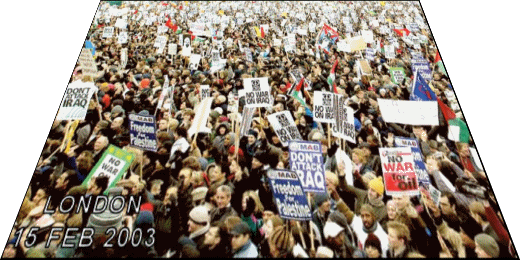Iraq was always wrong. Now we have proof
The Chilcot inquiry confirms what most suspected – the reasons for war were bogus.In future, such decisions must be transparent
The Independent UK
by Menzies Campbell
25 July 2010But slowly and with only occasional fanfare the whole sad, sorry story is being systematically laid out in evidence before the Chilcot inquiry. Chilcot has not been about surprises but rather about confirmation, less about revelation and more about corroboration of what we thought we knew.
Sir John Chilcot has made it clear that his committee is not a court of law and that no findings of legality will be made but just by exposing to public scrutiny the process by which legal advice was tendered and disregarded, he has provided more than enough evidence in support of the proposition that military action against Iraq was illegal.
This was the central plank of the Liberal Democrat case against war as Nick Clegg reminded the House of Commons on Wednesday. In the aftermath, the attention was upon whether he made that statement as an individual or as a member of the Government. Much more telling was the lack of reaction of the Labour benches in the Commons, including the candidates for leadership, not one of whom will now endorse the decision to go to war in March 2003 which they then supported. Every one a denier, a Simon Peter.
The illegality was then and is today easily stated. Article 2 [4] of the United Nations Charter prohibits regime change. It is hardly surprising that a treaty formed immediately after the Second World War should do so since the Axis powers ignored the sovereignty, territorial integrity and political independence of those whom they sought to annex or conquer – just as the action against Iraq did…
| UN Charter |
|
|
| Article 2: The Organization and its Members, in pursuit of the Purposes stated in Article 1, shall act in accordance with the following Principles… |
|
That’s similar to my take on the Chilcot Inquiry. In the UK, the Sir John Chilcot and his panel have been criticized for not asking hard enough questions. My sense of things is that they don’t need to – they’re doing just fine. The simple facts are coming out and confirming our hard-won speculations with every witness. The Iraq Invasion was illegal – it’s that simple. The British at least struggled with legality. We didn’t really seem to give it a great deal of thought. In fact, our policy was, if anything, anti-UN [Cheney’s Kampf and the war on the UN…]. As much as I came to detest the Bush Administration, it’s painful for me to hear what the witnesses have to say about our government’s behavior [it’s embarrassing].
noun
1. pride or arrogance
2. [in Greek tragedy] an excess of ambition, pride, etc, ultimately causing the transgressor’s ruin
Nor are domestic matters only affected. The debate in recent years about our relationship with the US, sharply focused by David Cameron’s visit last week, is framed not only by the changed priorities of the Obama administration but also by British reticence to be so close to our principal ally. Iraq casts a long shadow.In The Independent on Sunday on 16 February 2003, the day after a million people marched through London, I wrote "... most of those who were marching almost certainly understand the deception and ambition of Saddam. What they don’t accept is that military action is justified. They are not persuaded that containment and deterrence need to be abandoned. They do not accept that all diplomatic and political alternatives have been exhausted to the point that military action as a last resort is legitimate. They fear the consequences of war in the Middle East and they want justice and a homeland for the Palestinians. In short, public opinion in this country has arrived at a credible foreign policy. This is not anti-Americanism but a lack of confidence in the Bush administration – and a fear that the United Kingdom might end up acting like the 51st state of the union."
The public got it right. It is a great pity the politicians got it wrong.

We had a large crowd marching in NYC. My neice called me up while she was marching and told me I was there in spirit. I lost a long friendship (my decision) because of the Iraq War. If you took a look at the facts (Blix and company) Bush& Cheney continued to lie us into war because Iraq was an easier target.A bully doesn’t look for the biggest or strongest person to bully. That’s what Bush and Cheney did. The media helped let them tell their lies about the reasons we had to go to war. I would of felt better had they been told that men and women had to be drafted. Do you think Bush and Cheney would have been more willing to think twice if there daughters would be going to Iraq?
I’m still disturbed that so little notice is giving in our papers about this inquiry. The NYT had an article when Tony Blair testified, and then another one last week. I thought: at last they’re taking notice. But that’s it. Nothing since.
Perhaps the U.S. media, even the somewhat staid Times, needs a little more drama. Just simple facts, damning as they are, and coming from the Brits — well, we’ve got more exciting things to report on.
Maybe Hnas Blix’s testimony will have some appeal.